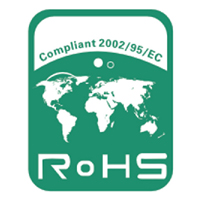
IPC, in conjunction with an international industry stakeholder group, applied for more than a dozen exemption extension requests under the European Union (EU) RoHS Directive The RoHS2 Directive dictates expiration dates for all exemptions granted and several critical to the electronics manufacturing industry are set to expire in 2016. Throughout the process, IPC and several member companies provided important technical information in order to ensure the extension requests are robust and scientifically sound. IPC reviewed all extension requests and provided important feedback that resulted in credible material submitted to the EU Commission.
Extension requests were submitted for the following exemptions:
Mercury in other discharge lamps for special purposes not specially mentioned in this Annex
Lead as an alloying element in steel for machining purposes and in galvanized steel containing up to 0.35% lead by weight
Lead as an alloying element in aluminum containing up to 0.4% lead by weight
Copper alloy containing up to 4% lead by weight
Lead in high melting temperature type solders (i.e. lead-based alloys containing 85% by weight or more lead)
Electrical and electronic components containing lead in a glass or ceramic other than dielectric ceramic in capacitors, e.g. piezoelectronic devices, or in a glass or ceramic matrix compound
Lead in dielectric ceramic in capacitors for a rated voltage of 125 V AC or 250 V DC or higher
Lead in PZT based dielectric ceramic materials for capacitors being part of integrated circuits or discrete semiconductors
Cadmium and its compounds in electrical contacts
Lead in white glasses used for optical applications
Cadmium and lead in filter glasses and glasses used for reflectance standards
Lead in solders to complete a viable electrical connection between semiconductor die and carrier within integrated circuit flip chip packages
Lead in cermet-based trimmer potentiometer elements
Lead in the plating layer of high voltage diodes on the basis of a zinc borate glass body.